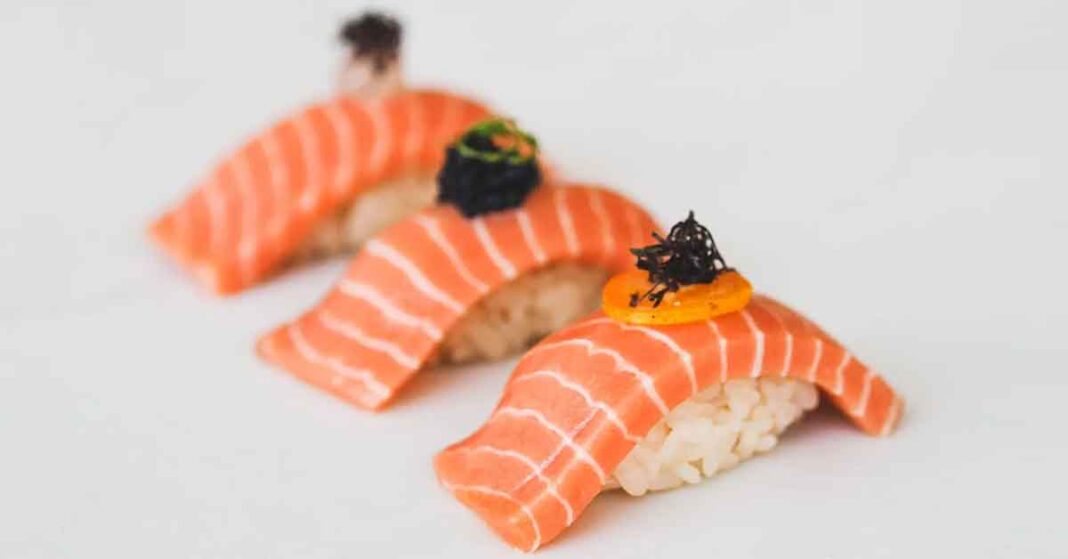Wildtype, a San Francisco-based company, received clearance from the FDA for its lab-grown salmon to be sold in the US, marking the first time cultivated seafood has been approved for public consumption in the country. The FDA’s “no questions” letter affirmed that Wildtype’s cultivated fish is as safe as conventionally produced seafood, paving the way for its introduction at a fine-dining restaurant in Portland, Oregon. This innovative product is created by growing cells derived from living Pacific salmon, which are then harvested and combined with plant-based ingredients to mimic traditional fish fillets.
The approval positions Wildtype as the fourth cultivated meat and seafood producer to gain FDA clearance, signaling an expansion within this burgeoning industry. However, the sector faces opposition from traditional farming and agricultural interests. Several states, including Florida, Alabama, Nebraska, Mississippi, and Indiana, have already enacted bans or restrictions on the sale of lab-grown meat. Despite this backlash, advocates like Wildtype assert that the technology is intended to supplement conventional agriculture by meeting the growing demand for animal protein amidst environmental constraints.
The US currently leads the world with 36 cultivated meat companies, according to a 2024 report by the Good Food Institute. Consumer interest in reducing meat consumption without entirely eliminating it — as seen with the estimated 15% of the US population identifying as flexitarians — presents a promising market for lab-grown alternatives.
Wildtype plans to expand its cultivated salmon to four additional restaurants in the coming months and is actively seeking partners to boost consumer awareness.
As state-level regulatory efforts intensify, cultivated meat producers are becoming more vocal in their advocacy. Wildtype, for instance, has actively opposed state legislation aimed at restricting cultivated meat sales, with its co-founders testifying against a Florida bill in 2024. The company underscores its belief that technological innovation can help address the critical challenge of sustaining global health and quality of life without further harming the planet, arguing that behavioral changes alone may not be sufficient within the necessary timeframe.
What labeling does the FDA require regarding lab-grown proteins?
As lab-cultured food is a relatively new class, we expect the FDA’s labeling regulations to evolve over time, potentially leaving individuals with food allergies exposed in the interim.
As it stands, according to industry guidance published by the FDA in January 2025, even when proteins derived from major food allergens are produced from alternative sources, such as genetically engineered microorganisms, they remain subject to the food allergen labeling requirements of the Federal Food, Drug, and Cosmetic (FD&C) Act.
The FD&C Act defines major food allergens as milk, egg, fish, crustacean shellfish, tree nuts, wheat, peanuts, soybeans, and sesame, along with any food ingredient containing protein derived from these foods.
The FDA maintains that if a food ingredient contains a protein with a DNA sequence originating from a major food allergen — even if produced through processes such as genetic engineering or fermentation in a non-allergen source (e.g., milk protein produced by yeast)— it is still considered “derived from” that allergen. This is because such proteins can still trigger allergic reactions in sensitive individuals, and their presence would not be obvious without clear labeling.
What we do know is that Wildtype salmon is made with protein derived from salmon, so individuals with fish allergy should avoid it as well.
- Lab-grown salmon receives FDA approval — Food Dive
- State of the Industry: Cultivated meat, seafood, and ingredients — Good Food Institute
- Questions and Answers Regarding Food Allergens, Including the Food Allergen Labeling Requirements of the Federal Food, Drug, and Cosmetic Act (Edition 5): Guidance for Industry — FDA





